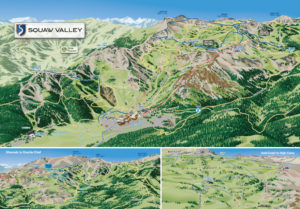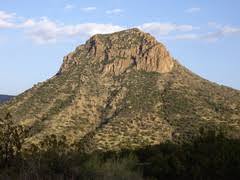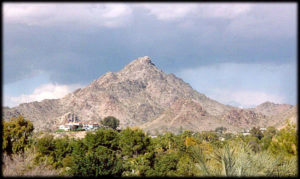 The West is riddled with place names that are offensive to Native Americans. There is Squaw Peak, Squaw Valley and hundreds of others scattered about the landscape. At the request of Arizona tribes the Forest Service is taking on the task of changing place names that contain the word “squaw” on Forest Service lands in that state. This is not an easy task.
The West is riddled with place names that are offensive to Native Americans. There is Squaw Peak, Squaw Valley and hundreds of others scattered about the landscape. At the request of Arizona tribes the Forest Service is taking on the task of changing place names that contain the word “squaw” on Forest Service lands in that state. This is not an easy task.
Geographic place names are designated and changed by the US Board of Geographic Names through a strict process that is initiated by those living in the area. The Board does not choose the name; they simply verify that the name they assign for official maps and records is supported locally. In the case of the “squaw” named features the Board is authorizing tribes within a certain radius of each feature to choose a new name. (If they fail to reach agreement on new names, the old “squaw” names will remain.)
Enter the mediator. I will be gathering interested tribes together in coming months to take on the job of renaming geographical places. Of course, these tribes already have their own names, probably in their own languages, for these places. The names may refer to some specific characteristic, like color, shape, size, vegetation, etc. Or the names may commemorate an event, from legend or history, where something significant happened. Or, they may honor a fallen hero, a mythical figure, a great leader, etc.
There was an effort several years ago to replace the “squaw” names, but the only names that the tribal groups could agree on were the lowest common denominator names, like “Tall Mountain,” “Green Valley,” “Flat Mesa.” They could not support any tribe-specific nominations, and the effort was abandoned.
Frankly, I am not sure we can do any better this time, but here is my hope.
We will gather the tribal leaders together in the shadow of one of the “squaw”-named features. Each leader will offer to the others the tribe’s name and the story behind that name. He/she will talk about its significance to the history and culture of the tribe, describing the heroic feats of a leader of the past, or the religious importance of the sacred plant that grows there, or the belief that this mountain or river or forest is a living being. No one will reveal culturally sensitive information that should remain with that tribe only, but as much as possible, the story and its power will be shared in the group.
I am hoping that the group may be moved by a colleague’s story and may be able to accept a name from another tribe. That story, the depth of the significance for that tribe may prevail. Theirs may be the most compelling and the group may be able to support the name change. I know this paragraph is full of “may”s, and I admit that this is a dream that may not become a reality.

But I take courage for this risky approach from the experience of a friend. He and his neighbor had decided to erect some kind of boundary between their yards. They were amicable, but not close friends, and each had certain reasons for wanting to block the view of the other’s yard. My friend wanted a traditional New Mexican goat fence (rough-cut sticks lashed closely together, usually 8-10 feet high). The neighbor wanted an adobe wall. They agreed to split the cost. The wall would be a little more expensive. The two sat down to negotiate. In the end, my friend agreed on the wall. When I asked why, he said, “I wanted the fence, but in the end I realized that he cared a lot more than I did. For him it was more important to have the wall than it was for me to have the fence.”
I have remembered the “who cares the most” rule and have tried to follow it when I can. Of course letting the one who cares the most have his way is not right for every situation. But I’m hoping that we can bring a bit of that spirit to the negotiating table in Arizona. If we listen carefully and with a generous heart a story may rise to the top and the squaw name will be replaced, officially.


This is THE BEST endeavor, Lucy. Such a worthy arbitration. So good. Myv.
Thanks, Myv. Crossing my fingers.
I really like this post, Lucy. I like that you are helping in the attempt to remove offensive names from these places and hopefully return more meaningful names. I look forward to hearing how it turns out, if you are able to write about it. Best of luck!
Thanks, Jake, and good luck to you in your endeavors. Glad you’re hanging in there.
Thanks, Lucy, for offering up and engaging in what may be a win-win scenario. With the backdrop of so many conflictual and combative stances it’s important to realize we humans can draw from our hearts to weigh, with generosity, meaning and significance. Love to know how this plays out.
Yes, it is comforting just to know that there is another way…no matter how this one plays out.
Good luck to you Ms.Moore. I hope the tribal representatives are able to reach consensus on these renaming (more —“correct-naming”) projects. I like very much the thought of letting the landscape speak. The eminent psychiatrist Carl Jung once wrote that if one stares at the icon long enough it will speak back to you. He too loved the American Southwest and honored the lifepaths of America’s native people. He was deeply moved by his visit to Taos Pueblo last century. I only mention that to say I have many times been “addressed” by the landscape in my hikes in New Mexico and am grateful for their life-replenishing communication.
If your collective efforts are gathered in that spirit, I believe these sites can speak for themselves and tell all their true names. Good luck in your listening.
Thank you, Reed, for reminding us that if we listen the landscape will speak to us. Hard to do in this noise-filled, chaotic time!
Good morning Lucy,
Great challenge. I like what Reed said about getting them to “listen” to the landscape. An approach I use in many mediations is to ask the disputants to tell a little about themselves. Often this brings out something they have in common and helps the mediation go forward more amicably. Perhaps there was a woman, like the young soldier, that is memorable for some reason that could nicely replace the “squaw”. Where did the term squaw come from? Was it one of a tribes’ word? May be interesting to explore that derivation.
Let me know how it turns out.
Good thoughts, Larry. Thank you. I googled the origin of the word…if you’re looking to distract yourself for an hour so, it’s the place to go. And yes, it was an adaptation of probably an Algonquin word for woman, but it’s a very interesting story.
I think that the times are changing and the moment may be right for this worthwhile effort. All of us, I think, are becoming even more sensitized to the ways that our culture allows and even supports abuses. I realize that I had become numb to it. The #MeToo movement reminded me to pay attention to the issue of sexual abuse. In some strange way, it wasn’t very high on my radar screen. It is now. I’d almost given up on gun reform – and didn’t know that I had. Words like “squaw” are offensive when I think about them, but they roll by me. But in the light of what has happened with #MeToo – many more women entering politics who never had thought of it; and with guns – a real discussion about banning assault rifles and making that issue important in the midterm elections; maybe the time is right for eliminating offensive and cruel descriptions that demean Ntive Americans. I’m hopeful!!
Thanks, Kay. It’s hard with so many worthy causes out there, not just worthy but critically important to someone. It’s hard to keep up and to stay in engaged and passionate is hard work. I try to appreciate the importance for others even if I can’t afford to have it on the top of my list. Right now it’s gun control, thanks to those courageous ones in the next generation.
Hi Lucy – a noble quest indeed. We have so many inappropriate names, it seems, so any effort to remove and replace them is welcomed (and I applaud my State for the initiative). My concern is “who speaks loudest” could overwhelm “who cares more”. There’s a challenge. – Dale
A real challenge for us in the conflict resolution business, I agree!
Dear Lucy,
Thanks for writing this down and sharing your thought process with us! No doubt this will be challenging and interesting. I look forward to talking with you about it sometime!
thanks, Seth, would love to hear your thoughts — my so-called mentoring sessions with you always resulted in great insights for me.
Hi Lucy,
I thought this was a great post. Not only did I learn something about how names can be changed, but I also began to understand that the process may have potholes. I do wish you the best for a productive arbitration process.
Thanks, Jeff
Thanks, Jeff. Your good wishes are always appreciated.
all best wishes to you Lucy and your consulting tribal folks. great process; important work!!
Thanks, Susan. I am hoping for the best, with some kind of belief that that makes a difference. Optimism, why not???
Best ever article.
I know you will be able to help at least some people reclaim their land.
Thanks, Roy…interesting you say “reclaim their land” — because that is not in the cards in the physical sense, but maybe renaming in a native language is a kind of reclamation.
Lucy you brave experienced listener to land and people! ❤️?? please tell stories of this later.
Thank you, Nedra — that is the nicest professional compliment I can think of.
interesting and I await the results. That word is in every language and depending how they use it makes a difference. Biblical word rib then used to form woman. Costia valley. But what do I know.
Now, there’s an understatement, Lorain! What do you know? A ton!!! So good to hear from you.